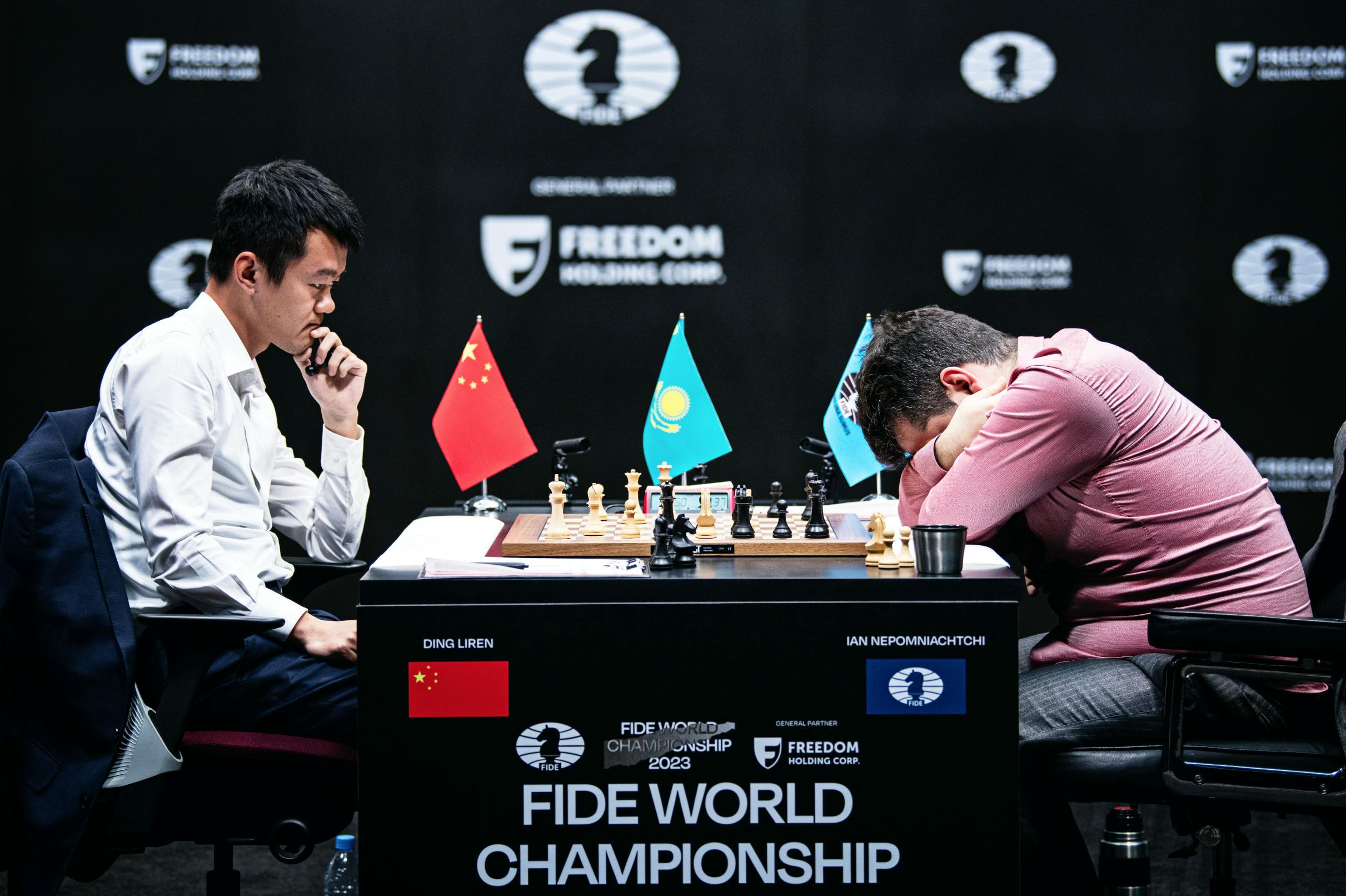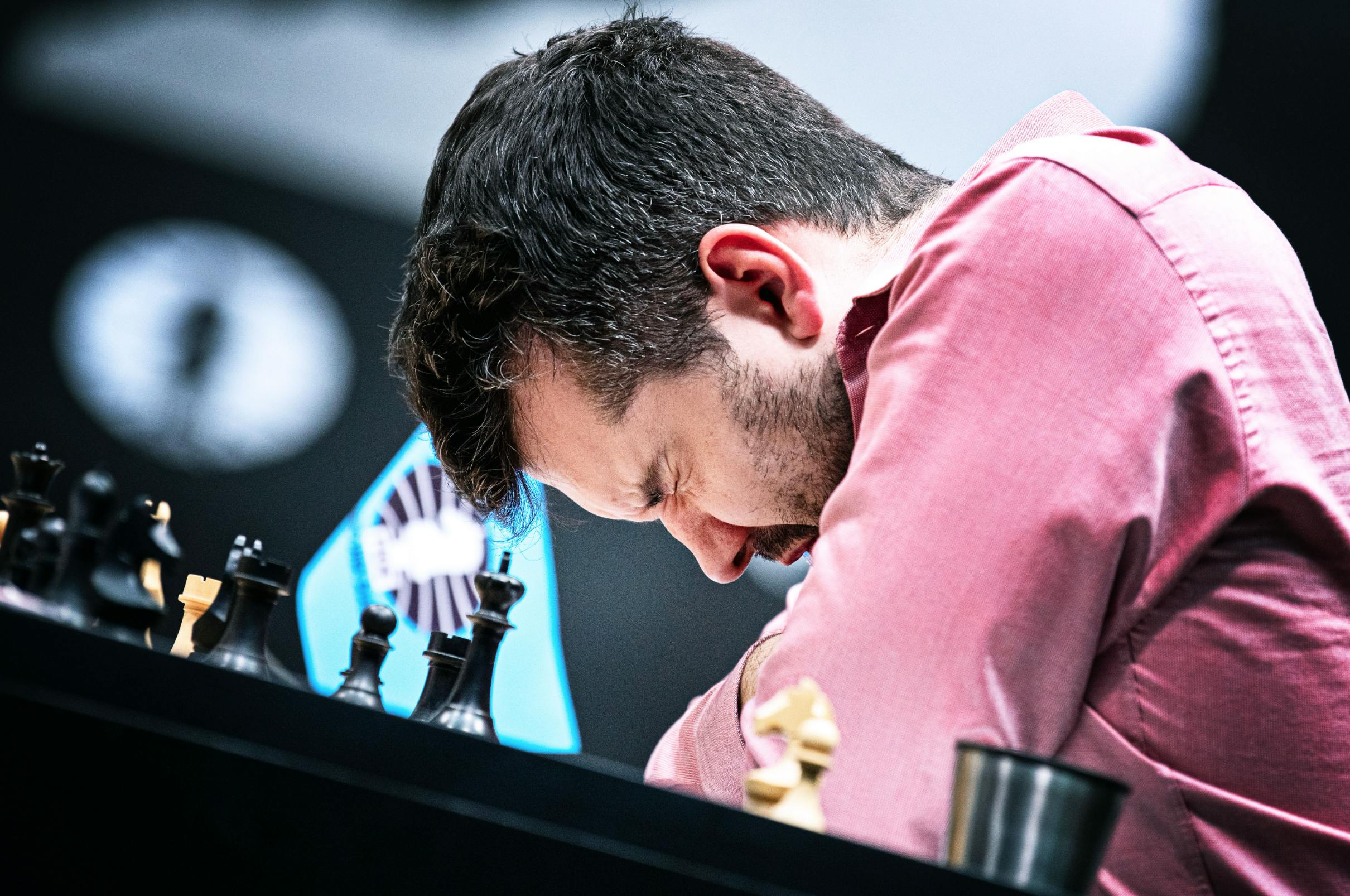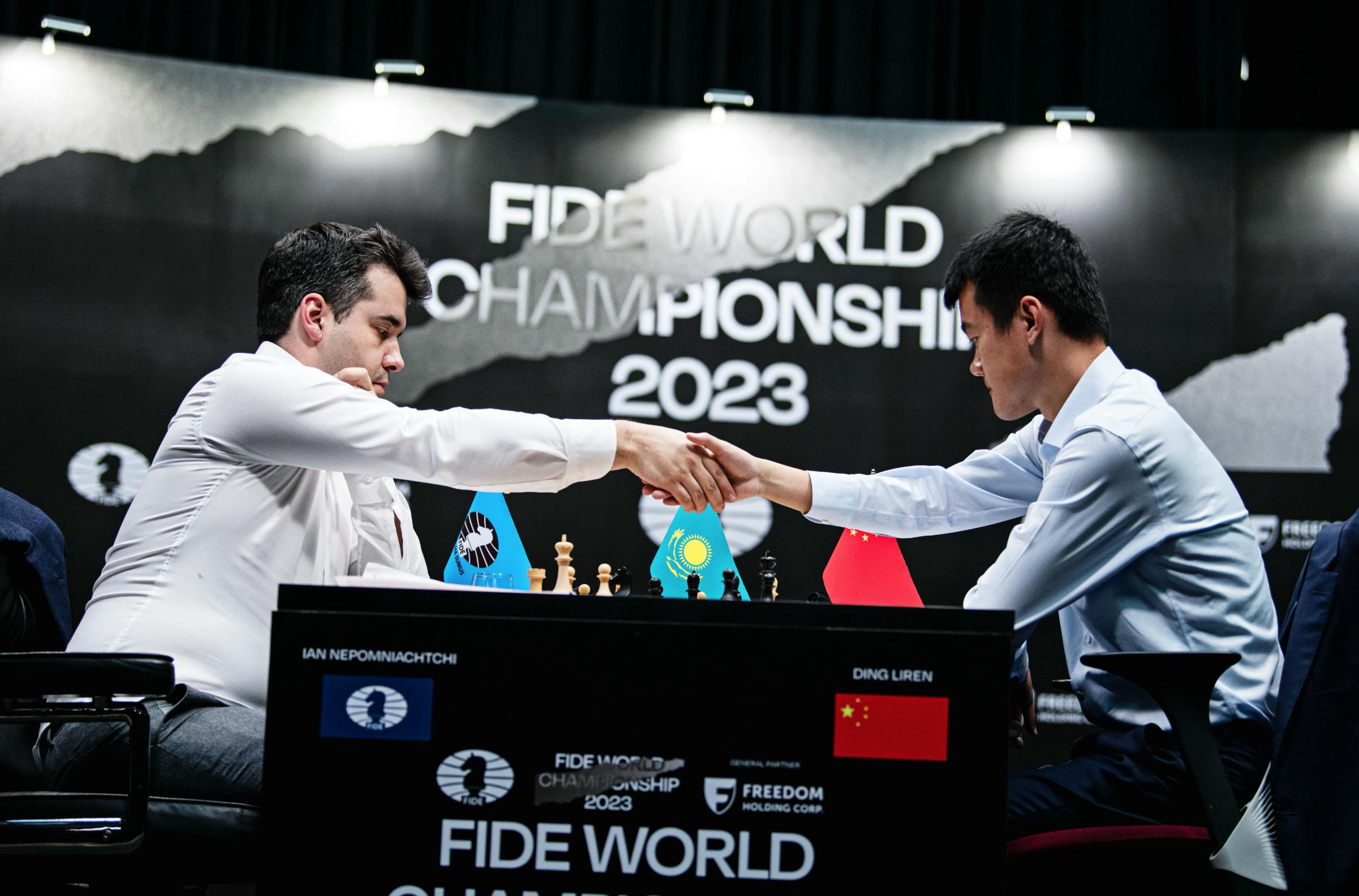World Chess Championship: Games 12 and 13 - Ding's Third Comeback: Chaos in the Colle!
A recap of Games 12 and 13 of the World Championship between Nepomniachtchi and Ding, and with annotations by GM Harikrishna Pentala

Games 12 and 13 of the 14-game match between Ian Nepomniachtchi and Ding Liren have just been played in Astana, the capital of Kazakhstan. The winner will be crowned as the new World Champion in classical chess, following Magnus Carlsen’s abdication of the title.
The schedule of games can be found here, with Lichess providing a live broadcast transmission of all games. Read below for detailed thoughts and annotations on the games from GM Harikrishna Pentala – one of the strongest players in the world (FIDE Rating: 2704, World Rank: 34) and a former world top 10 player with a peak rating of 2770, along with more general impressions on the tournament so far.
Game 12
The annotations by GM Harikrishna Pentala are provided in the embed below, with a direct link to the full study available here.
https://lichess.org/study/SkQqKSso/VZr0vdSB
With the score at 6 – 5 in Nepomniachtchi’s favor and going into the last few games of the match, Ding was running out of time to catch up again on points. Meanwhile, Nepomniachtchi would be comfortable to play for draws in games 12 – 14, as doing so would still get him to 7.5 points and win the World Championship title regardless.
These last few games represented Ding’s last serious chances to potentially comeback and at least draw level to trigger tiebreaks, as in the last three games Ding has the white pieces twice – giving a small initial advantage at this level.
Ding played 1. d4 and went for the Colle system – seen infrequently at master level play, and with a reputation similarly divisive as the London system which Ding employed to score a win in Game 6. Unlike the London system, the Colle system has been seen in World Championship match history before, with Carlsen opening with it and losing to Karjakin in the 2016 World Championship, Game 8. Some may say this was not an auspicious start for Ding.

(Photo - FIDE / Stev Bonhage)
Regardless – perhaps searching for a weakness in Nepomniachtchi’s preparation – Ding came out of the opening into a sharp and double-edged position with a small advantage. However, these positions generally favour Nepomniachtchi, and he was able to find the best play to develop a scary big attack prepared against Ding’s castled king.
Things were looking dire for Ding, but a series of blunders and mistakes – unusually inaccurate play at this level – from move 26 removed the winning advantage Nepomniachtchi had built up, restoring equal chances into the position.

(Photo - FIDE / Stev Bonhage)
A final blunder by Nepomniachtchi on move 34 sealed the position for Ding, who seemed initially uncertain if he had missed something. However, after careful calculation he realized Nepomniachtchi had simply made a massive blunder, and after finding the winning idea, Nepomniachtchi resigned.
Ultimately, the game was a massive lucky break by Ding to get him back into contention at 6 – 6. As GM Harikrishna Pentala writes in his annotations, “This is one of the games where players were playing way below their usual level. Call it the nerves, fatigue, or both; It is unprecedented in a world championship match to have so many mistakes in a single game.”

(Photo - FIDE / Stev Bonhage)
Nepomniachtchi showed his main weakness; move-impulsivity which has cost him World Championship games against both Carlsen and Ding. Will it cause him to lose the match overall?
Game 13
The annotations by GM Harikrishna Pentala are provided in the embed below, with a direct link to the full study available here.
https://lichess.org/study/SkQqKSso/oD6UdrNl
Questions were on Nepomniachtchi to see how he would handle and react to Ding's third comeback – Nepomniachtchi has been known to “tilt” at losses before and with no rest day in between the games, managing his emotions would be critical.
At the same time, Nepomniachtchi had the white pieces – his last game before tiebreaks with white. Opening with 1. e4 and going for a closed Ruy Lopez, neither player wanted to take over extensive risks.
However, Nepomniachtchi was the first to create imbalances in the position – and these equalized the position, and then eventually even a small advantage to Ding. However, Ding was not able to build on it and after some inaccurate play, after an exchange sacrifice the position resolved into a tense, but likely drawn, position.

(Photo - FIDE / Stev Bonhage)
With so much on the line, neither player was keen to take unnecessary risks – and black offered a repetition that white accepted.
Bringing the score 6.5 – 6.5, with Ding playing with white in the last game of classical, we have an exciting finish ahead of us! A draw will take us to tiebreaks, or a win by either player will give us a new World Champion, tomorrow. With so much on the line, and the players so tired – will it be decided by nerves and pressure? Or will both players want to be safe and test each other in tiebreaks instead?
Snap verdict
GM Harikrishna Pentala gives the snap verdict best in his annotations – “Game 14 would be quite interesting, and we can expect ups and downs. With a nail-biting finish waiting ahead, Chess fans can expect a thriller in the last game. It is natural for the players to get tired after many days of intense games. But the ups and downs we have seen in the last two games are quite surprising. Like every chess fan, I eagerly await the last game in the classical part of the match.”
What do you think will happen in Game 14? Tell us in the comments!
Lichess is regularly running World Championship Thematic Arenas on the days of the tournament - with positions taken from the games. Make sure you follow our social media to see when the next one will be!
(Title photo - FIDE / Stev Bonhage)